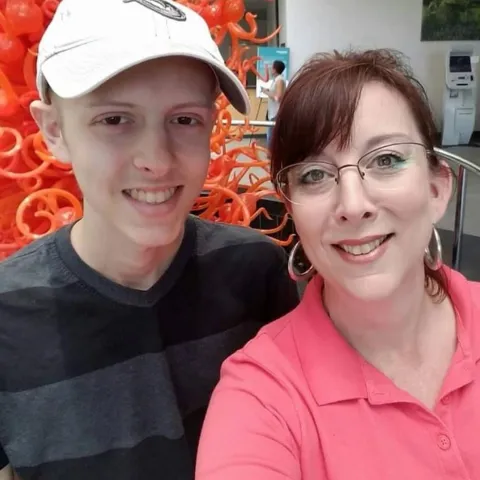
Dee, United States

In January of 2016, I heard the words that every parent prays they never hear: "Your son has cancer." My 17-year-old child had stomach cancer. Wait, isn't that a cancer that older people get? The doctor then turns to me and says, "Mom, since you've gone through this, you'll be able to help him through this..." Oh sure, I knew all too well the hell that he was about to experience. In 2011, at the age of 41, I was diagnosed with breast cancer after my very first mammogram. I knew how surreal it is to think that something inside you is growing and trying to kill you. I also knew why one of my son's first questions was about losing his hair. I knew that the surgery and the treatments would make you wonder which was worse, the tumor or the poison they were pumping into your body. What I couldn't fathom though, was why he had to endure this. How would he manage living without a stomach? Would he be able to have children some day? Why can't he enjoy his senior year of high school, graduate, and go on to college in the fall like all of his friends? Why can't I just be the one to get it again? God, please give it to me, not him.
Never fear, there is a happy ending. Eight years later, he is still in remission. Some questions have been answered; some have not. You can get some awful chemo and still finish high school on time. You may lose your hair, but it grows back. You can live without a stomach. You can thrive after cancer.
